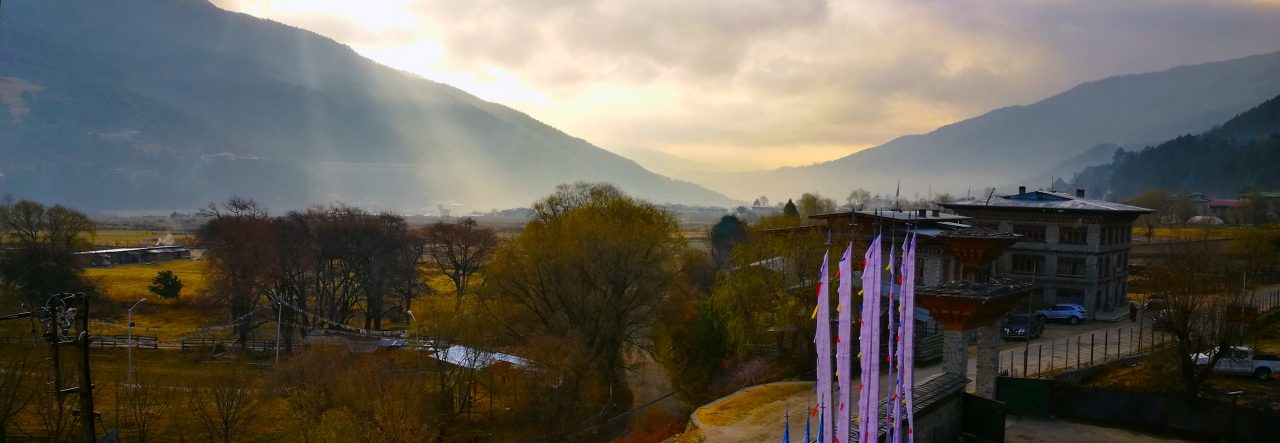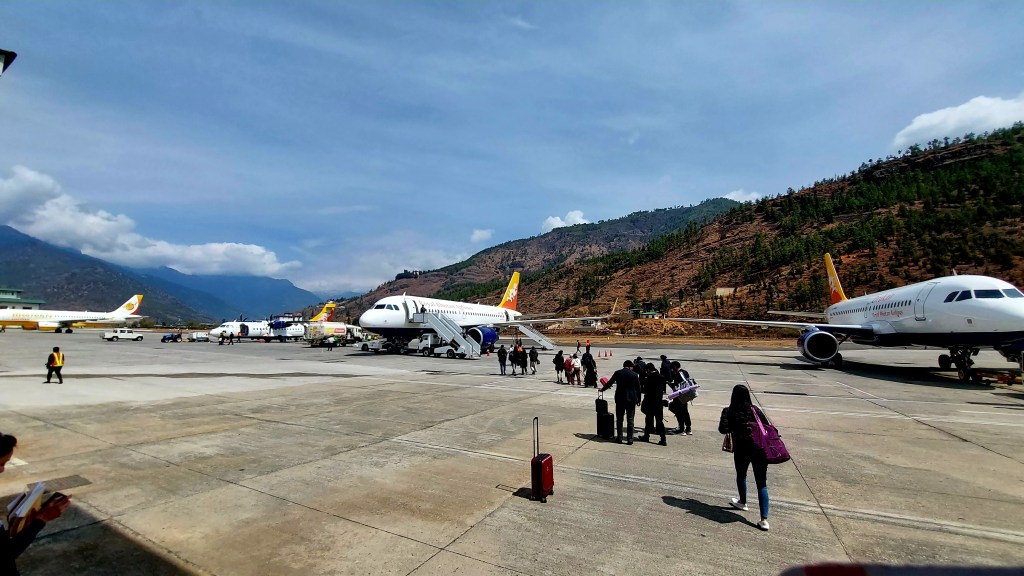(Tragedy for Children Left Behind – Part II)
My earlier post on children left behind has stirred some conscience. I am glad. That was my intention – to make people think and reflect. Some, of course, just got offended and shrugged it off as nonsense. It has also put others in defensive mode. These were all expected. This is a very sensitive and personal matter. I understand.
I close this topic with a very personal story.
In the early 1970s when we (my four siblings and I) were growing up in Phuntsholing our parents really struggled to feed us and clothe us. My father was just a bus driver – a single-earner parent, who also had to look after his own siblings (my young uncles and aunt) since my father was the eldest. My grandfather had passed away when my father was just 10.
We lived on a bare minimum and I remember I often went to Hindu pujas and ceremonies that were conducted at the nearby Hanuman temple in Jaigaon. They gave me free food, with tea and dessert too. (This is the reason I love Indian people). Other times I ran errands for our neighbours and they would either give me some small change or feed me in their homes. Everyone knew I was always hungry. Other times I collected empty beer bottles from private homes and sold them in Jaigaon.
Around that time we also had a well-off granduncle in Kalimpong called memay Sangchung. He often visited us in Phuentsholing and took a liking for me. Memay Sangchung ran occasional tasks for the Bhutan House and our royal family and made his fortune by hosting Tibetan traders in his house. I was told he hand-stitched the ghos for the Third King, which was very highly appreciated. He was my late grandfather’s younger cousin – a close relative by Sharchop standards because he shared the same bloodline and came from the same house in Tashigang.
Memay Sangchung felt very sorry for my father and offered to help. He often took me and my sister to Kalimpong on school breaks and gave us everything we asked for – food, clothes, pocket money, etc. He also offered to adopt us and educate us in the best boarding schools in Kalimpong or Darjeeling. Memay even tried to entice me by showing hundreds of zee beads, ivories, cobra horns and gold statues, and told me I could have them all if I became his foster son.
My father was quite open to it afterall memay was his real uncle. But my late mother was totally against giving us away. “Even if I can only afford a yomri (thin flour broth – a food of the poorest), we will eat together, and I will raise my children like that”. She was absolutely clear about what she was doing and what she could provide for us. “Waktsa rey soenam rey” (every child comes with a fortune) was her favourite line. I later went to Don Bosco Technical School (Kharbandi) in the same town.
What my mother lacked in terms of materials and properties, she made up with her big heart, optimism and a great sense of humour. Despite the hardship, our house in Phuntsholing was also the favourite transit hostel for every person from eastern Bhutan. But my mother never once complained or turned away anyone who sought shelter in our home.
She poured her unconditional and boundless love on all of us – without distinction and without once feeling hopeless. Maybe this is the reason why my siblings and I grew up as fairly grounded people. We simply grew up in love, laughter and optimism – but penniless and most of the time slipperless.
So to all of you, especially the young Bhutanese mothers, whatever you can afford for your children is okay. However, I wish you the togetherness, sitting in circles, and eating and enjoying that simple thing you can afford – maybe it is just a yomri – but with limitless love and laughter. Now or later. Whenever.
Yes, money is important. That’s the sad reality of the modern world. But don’t forget love. And for that, you don’t have to seek it anywhere else. You don’t have to leave the country we all love – or the community that loves you.
It is there inside you – in all of us. And maybe that’s the best gift you can give. Rest, I believe, your children will figure it out – like we did. Because, we all come with a fortune clipped on our head.
(Picture: My father, my younger sister and I with my Dev Anand-inspired hairstyle. 😁😁😁 1976, Phuntsholing, Gupta Studio. The shirt and the tie were part of the Studio wardrobe.)



